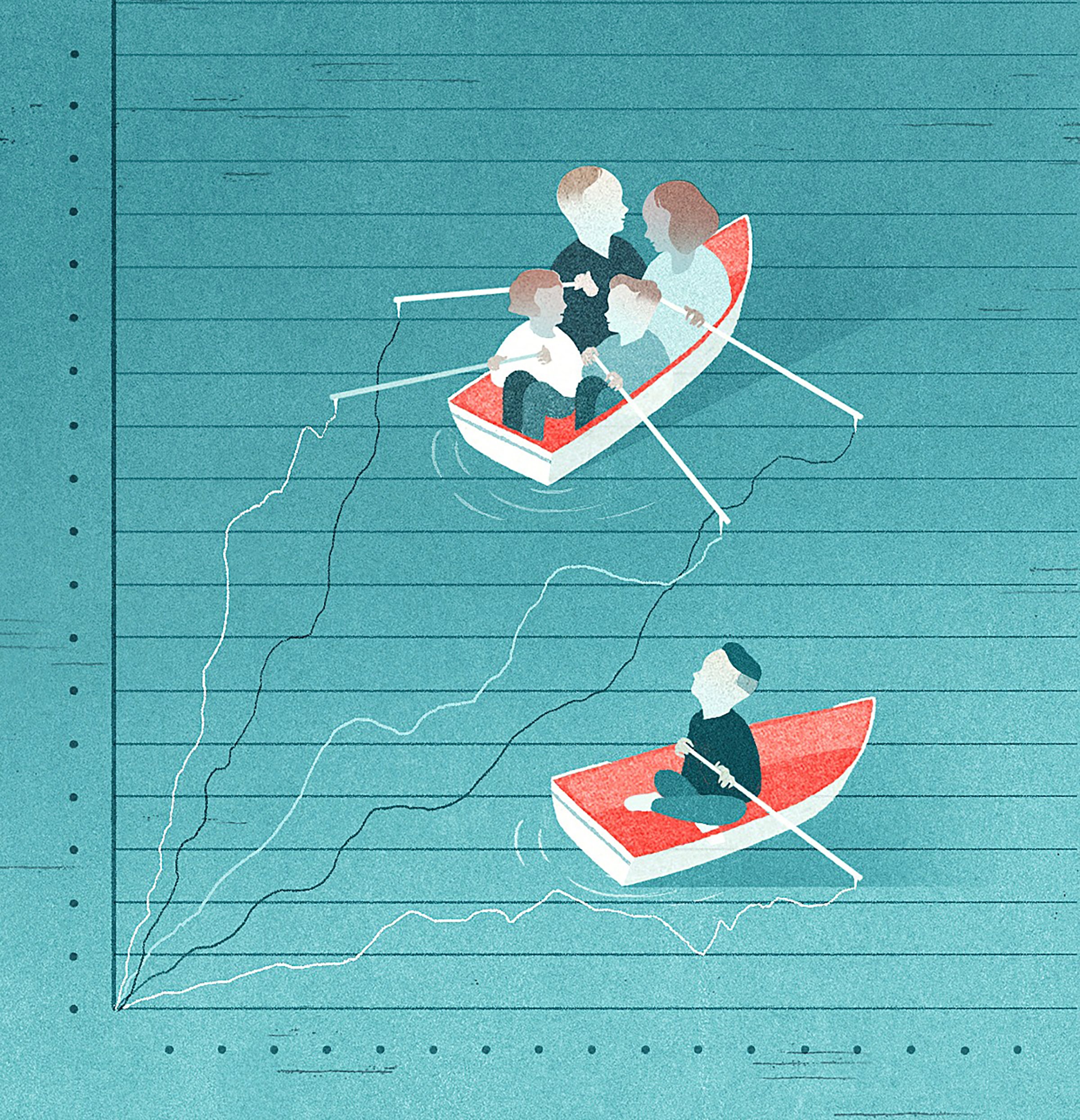
Experts have long known that people with strong social networks tend to eat healthier, exercise more and even live longer. Now they’re developing a more nuanced understanding of why. Scientists used to think that having another person around helped survival in a very practical way: if you fall ill (or fall over), you stand a better chance of getting the help you need if there’s someone by your side. Now they’re discovering that there may be something more at play.
FAMILY TIES ARE LINKED TO IMPROVED LONGEVITY
There are plenty of good reasons to spend more time with your grown kids or to call your sister, and living longer turns out to be one of them. The link between strong family ties and longevity is clear, and researchers are learning that the inverse is also true: people with fewer ties to their relatives, new research suggests, fare worse. In a 2016 study presented at the annual meeting of the American Sociological Association, about 3,000 people ages 57 to 85 listed up to five of their closest confidants. Older adults who said they felt “extremely close” to family members on their list had about a 6% risk of dying in the next five years compared with about a 14% risk of death in the same time period among people who didn’t feel as tight with their family.
Researchers think this could be due to the sense of responsibility that family often inspires. “We have strong expectations around providing for one another and not shirking,” says study author James Iveniuk, a postdoctoral researcher at the University of Toronto’s Dalla Lana School of Public Health.
SIBLING RELATIONSHIPS ARE A BOON FOR WELL-BEING
They may get on your nerves, but you might also have your siblings to thank for at least some of your well-being. It turns out that people with siblings tend to fare better, mental-health-wise, than people without them, especially if they’re close.
A 2015 study of siblings from 246 families found that young people who considered their relationship with their brother or sister to be positive had fewer depressive symptoms compared with those who didn’t get along with their siblings. Other studies report that people with siblings, especially sisters, are less likely to report feeling lonely, unloved, self-conscious or even fearful.
Studies of adult siblings find that those benefits extend into middle age and beyond. The vast majority of people with adult siblings report having a good relationship with their kin. They are also likely to report being happy and having better moods.
SPOUSAL INTERACTIONS CAN HAVE BIG BENEFITS
Having a thoughtful conversation with a spouse can not only increase intimacy but also improve health in meaningful and lasting ways. A 2017 study of 162 married or co-habitating couples found that on days when they had a pleasant, positive conversation, the partners felt less lonely and more intimate, and fell asleep faster, than on days when they didn’t. “When you experience something positive and share it with a partner, it influences your health,” says study author Sarah Arpin, an assistant professor of psychology at Gonzaga University. “Interactions in our relationships impact us more than we think.”
Although that particular study looked at conversations about good news, not all chats need to be positive for a beneficial effect. Just feeling that a partner is responsive has been linked to better overall health.
More Must-Reads from TIME
- Cybersecurity Experts Are Sounding the Alarm on DOGE
- Meet the 2025 Women of the Year
- The Harsh Truth About Disability Inclusion
- Why Do More Young Adults Have Cancer?
- Colman Domingo Leads With Radical Love
- How to Get Better at Doing Things Alone
- Michelle Zauner Stares Down the Darkness
Contact us at letters@time.com